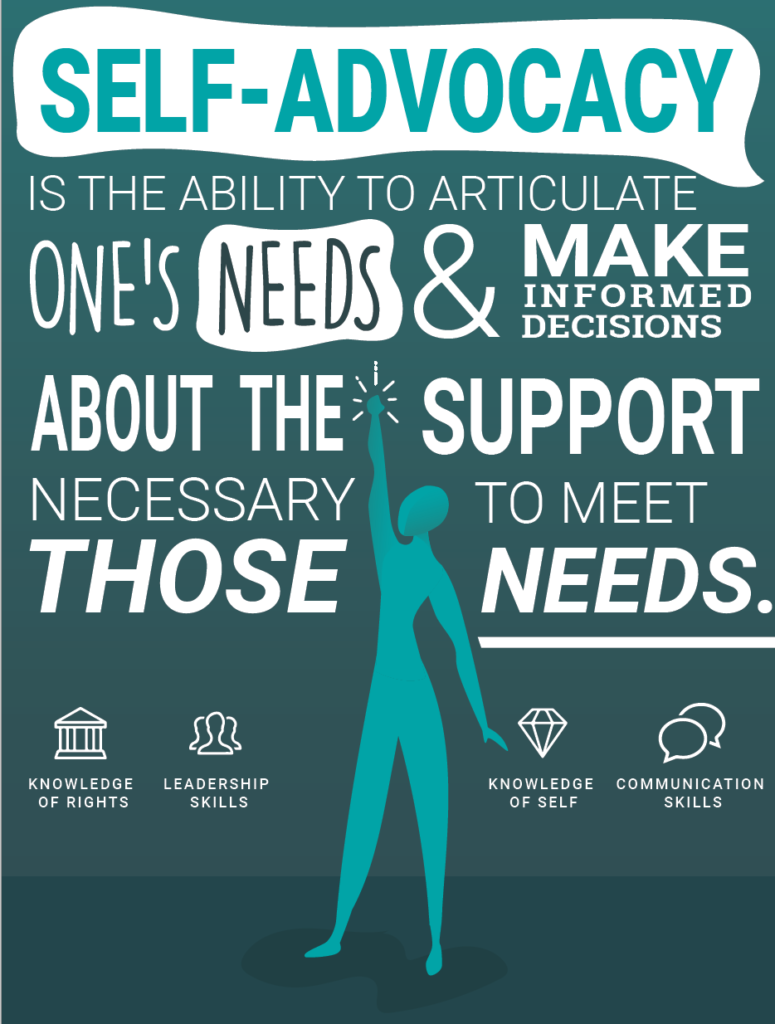Self-advocacy is the ability to speak up for oneself in situations that affect the future, the way people are treated, and even how successful someone can be in personal and professional life. Because self-advocacy is a “learned behavior” it is a parent’s responsibility to make sure that teens are given opportunity and support in making decisions about their futures.
Although it can be hard for parents to simply stand by and watch their teens make decisions that they might disagree with, if teens are not given the opportunity to make decisions when younger, they will find it more difficult, and will make even graver mistakes when it comes to making decision when they are older.
According to an article by Dayana Kupisk in Parenthetical.wisc.edu, teens who are given the opportunity to advocate for themselves:
- Better know who they are
- Have higher self-worth
- Make more personal and professional connections
- Are better suited to lead others
- Have better problem-solving skills
Even though parents with good intentions want to be able to control their teens’ futures so that they face as few obstacles as possible, this does not help them in the long run. Instead, it sets them up for failure when they are unable to make decisions or trust their instincts as they strike out on their own.
While it is important for teens to learn to speak up for themselves, they also need to recognize that there are limits to their ability to do so, and they need to understand the consequences before they can successfully advocate for themselves. It is the parent’s responsibility to teach their teens how to recognize the limits. Some of these things include:
- What is important to speak up about
Why is it important?
What will happen if they don’t speak up?
What will happen if they do speak up?
Are they willing to accept the consequences – whether bad or good?
- How much freedom they have to make decisions
Are there rules, laws, or expectations in place that govern the issue in question?
How will their self-advocacy affect others?
Do they have “authority” to make the changes for which they are advocating?
Are they willing to accept the limitations of their freedom or authority?
- Know where the support systems are when working on self-advocating
Are they going it alone or do they have a support system?
Do they have a plan?
Does their support system know about it?
Do they understand that their support system doesn’t take responsibility?
Teens who are encouraged to advocate for themselves listen to their instincts rather than simply go along with what others crowd, or choosing the profession others have laid out for them. When this happens, teens learn that they can think for themselves, but are confident going to role models when needed.
Being a self-advocate takes practice and teens should be given increasingly complex opportunities to master this skill. From working out a disagreement with a friend to discussing a grade with a teacher, or even affecting school disciplinary policy, teens are capable of advocating for themselves.
